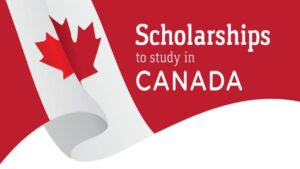America’s Top Universities: 2024 Complete Guide for Students
For the second year in a row, Princeton University leads Forbes’ America’s top universities and Colleges ranking. Ranked among the top 500 for educational, financial, and career outcomes, this is a very illuminating guide for prospective students. As we go through the top universities in America for 2024, let us establish what stands out about them, or for what reasons each of these has been rated as the best options for higher education. 1. Princeton University Located in Princeton, NJ, Princeton University continues to perform highly on all metrics while providing the best education a student could want. With an outstanding 97% six-year graduation rate for low-income students and an average alumni salary upon graduating at $189,400, Princeton continues to be one of the most viable options for students looking to make it to the top. Large amounts of financial aid are doled out to ensure higher learning is available to all, with the average grant a whopping $59,792. Acceptance Rate: 6%SAT Composite Range: 1490-1580ACT Composite Range: 35-35 2. Stanford University Stanford University occupies the second position, having a very vibrant learning environment along with one of the highest earning potentials for graduates. Located in the centre of Silicon Valley, the private university has an average grant aid of $60,619 and an alumni salary of $177,500. It is one of the finest destinations for future leaders and budding entrepreneurs, having a rather vigorous academic curriculum combined with an innovative culture. Acceptance Rate: 4%SAT Composite Range: 1500-1580ACT Composite Range: 33-35 3. Massachusetts Institute of Technology (MIT) Massachusetts Institute of Technology (MIT) is known for its cutting-edge research and gruelling academic programs; hence, it is a favourite of every student majoring in Science, Technology, Engineering, and Math. With average grant aid at $ 45,591 and an alumni salary on par with Princeton at $ 189,400, it continues to chum out some of the most influential innovators globally. There is great respect for the institution’s insistence on excellence through its selected track of admission and set high academic standards. Acceptance Rate: 4%SAT Composite Range: 1530-1580ACT Composite Range: 35-36 4. Yale University Founded in 1701, Yale University represents one of the oldest and most prestigious universities in the United States. The university offers a rich academic heritage combined with influential research opportunities. Situated in New Haven, CT, Yale is generous with its financial aid, offering an average grant of $63,523. Graduates from here command an average salary of $168,300, which makes Yale a very good option for students aiming both at academic and career success. Acceptance Rate: 5% SAT Composite Range: 1500-1580ACT Composite Range: 33-35 5. University of California, Berkeley (UC Berkeley) UC Berkeley is among those world-famous public research universities with excellence in academic reputation and vibrancy on campus. With more than 33,000 undergraduates, Berkeley offers one of the most diverse learning environments. It extends an average grant aid package of $21,669, making it somewhat friendly for many candidates. Berkeley attracts highly ranked universities nationally and globally, creating a pool of successful graduates. Acceptance Rate: 11%Total Cost: $73,115 a year 6. Columbia University Located in New York City, Columbia University is considered one of the most prestigious Ivy League institutions because of the academic excellence it maintains and the influence it has on international affairs. With an average grant aid of $61,061 and a strong alumni salary of $156,000, this university assures its graduates of a good return on investment. Due to its excellent location and top-ranked faculty, this university is enormously sought after by students from around the world. Acceptance Rate: 4%SAT Composite Range: 1490-1580ACT Composite Range: 34-35 7. University of Pennsylvania (Penn) Located in Philadelphia, PA, the University of Pennsylvania is an Ivy League interdisciplinary hub famous for its key research programs and was ranked as one of the best universities in America. It offers generous funding, with an average grant of $57,175 covering a significant portion of a student’s tuition. After graduation, Penn graduates enjoy excellent prospects on the job market, earning an average salary of $171,800—a testimony to the university’s investment in students’ futures. Acceptance Rate: 7%SAT Composite Range: 1500-1570ACT Composite Range: 34-35 8. Harvard University As the oldest institution of higher learning in the United States, Harvard University has upheld its reputation as a global leader in education. Located in Cambridge, MA, Harvard offers an average grant aid of $61,801, assuring that students from all walks of life can afford a Harvard education. Graduates earn an impressive average salary of $171,400, making the value of a Harvard degree unmistakable. Acceptance Rate: 3%SAT Composite Range: 1490-1580ACT Composite Range: 34-36 9. Rice University Due to low student debt and high success rates of its graduates, Rice University in Houston, TX, has seen a significant rise in the rankings. With a mean grant aid of $51,955 and an alumni salary of $152,100, Rice offers good return value. Rice has small class sizes and focusses much on offering individual attention, making it one of the hottest choices for those who want a closely knit academic community. Acceptance Rate: 9%SAT Composite Range: 1490-1570ACT Composite Range: 34-36 10. Cornell University Located in Ithaca, NY, Cornell University had strong academic programs and campus life to place it in the top 10. The average grant aid and alumni salaries are $50,000 and $155,400, respectively. With this, Cornell offers quality education coupled with excellent career prospects. The university is committed to research and public engagement and, therefore, is leading in higher education. Acceptance Rate: 7%SAT Composite Range: 1470-1570Composite Range of ACT: 33-35 Conclusion The best top 10 universities in America, in 2024, will provide outstanding educational opportunities, financial assistance, and career opportunities. Success is introduced at the doorstep of these prestigious higher learning institutions, which will grant students everything they need to turn their academic and professional aspirations into reality.










